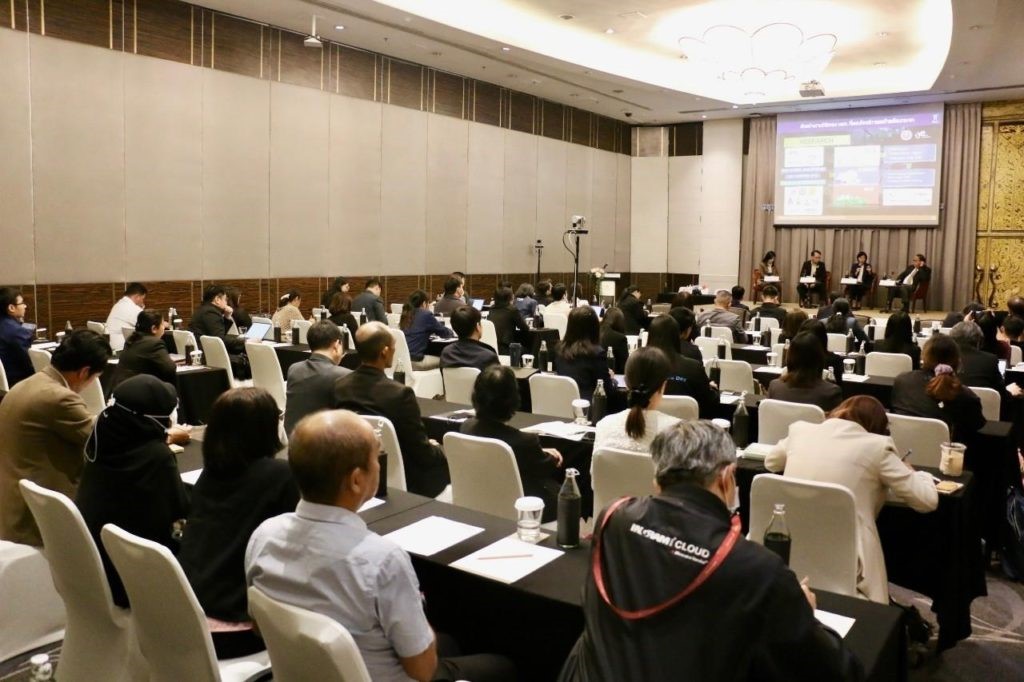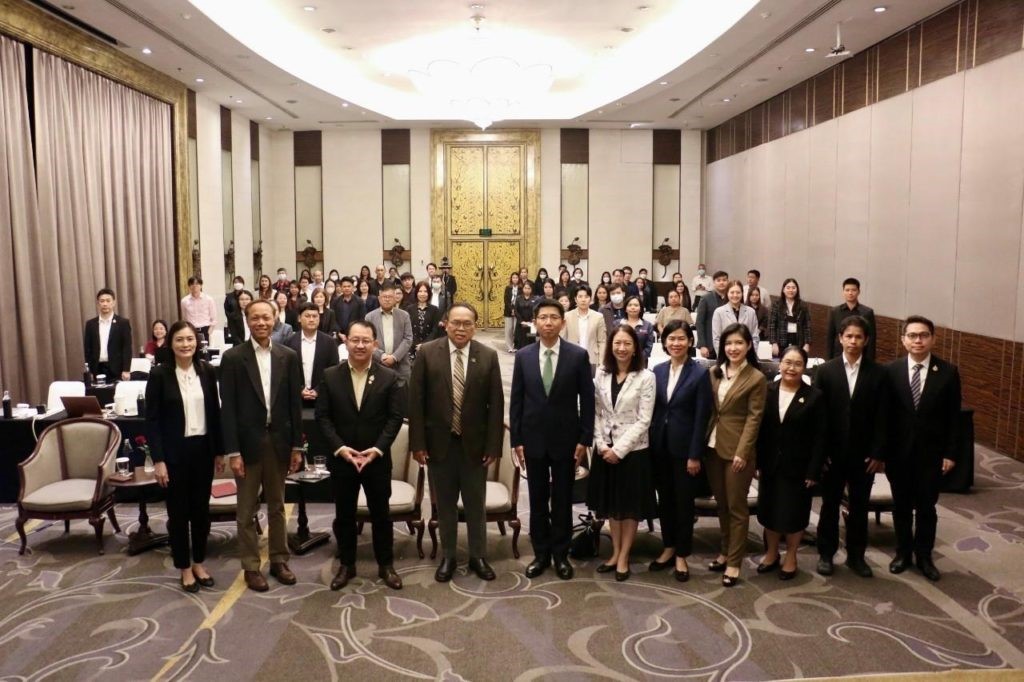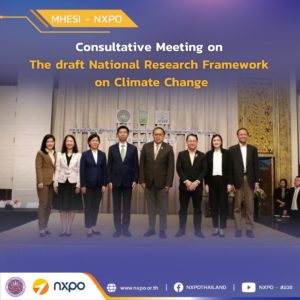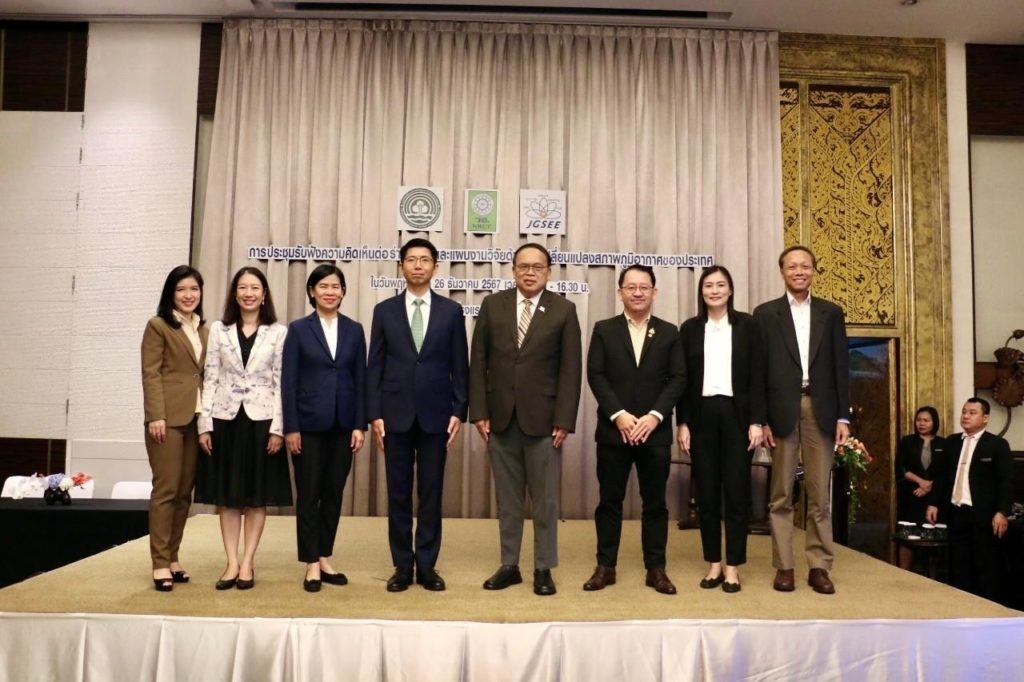
On 26 December 2024, MHESI-NXPO joined a panel discussion on research directions to address Thailand’s climate change challenges. The session was part of a consultative meeting on the draft National Research Framework on Climate Change, organized by the Thailand Research Fund’s Coordinating Center for Global Warming and Climate Change Research (THAI-GLOB) and the Joint Graduate School of Energy and Environment (JGSEE) at King Mongkut’s University of Technology Thonburi. The event aimed to present the current state of climate change and gather stakeholder inputs on the draft framework.
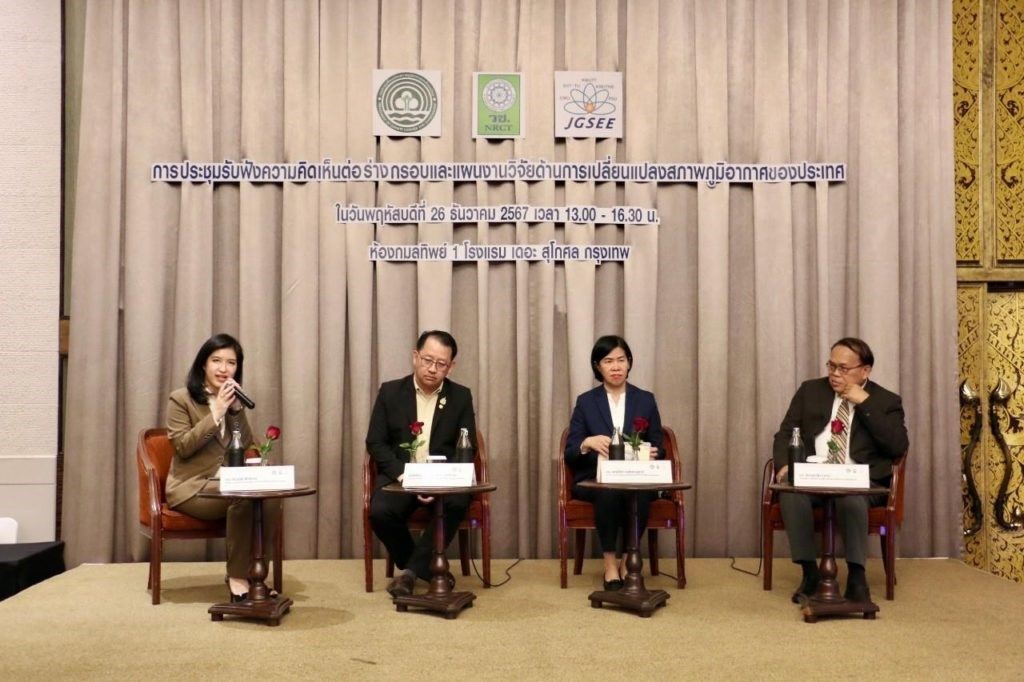
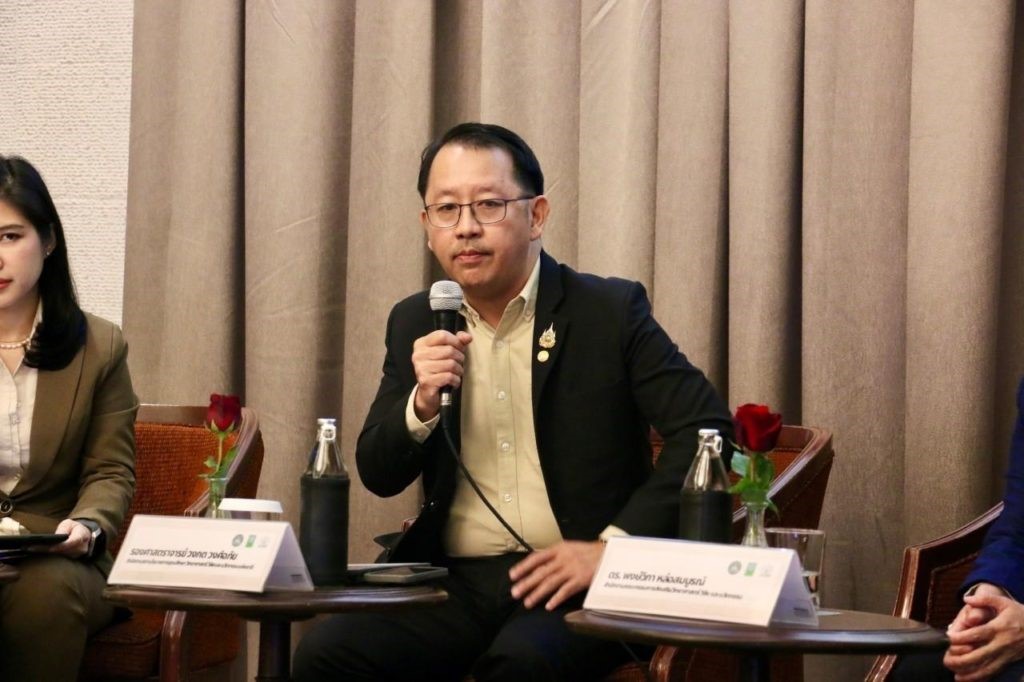
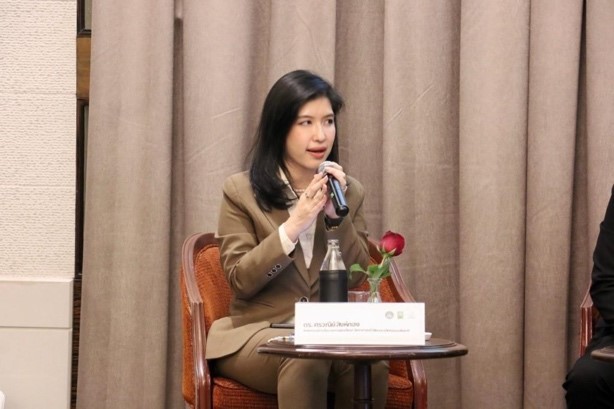
The session featured Assoc. Prof. Dr. Wongkot Wongsapai, Senior Strategist at NXPO; Dr. Wijarn Simachaya, President of Thailand Environment Institute (TEI); and Dr. Pongvipa Lohsomboon, Senior Expert at the Thailand Science Research and Innovation (TSRI) as panelists and NXPO Director of Sustainability Policy Division Dr. Saravanee Singtong as the moderator.
The meeting presented the draft National Research Framework on Climate Change, which outlines operational structures and strategies for higher education, science, research; the 2023–2027 Science, Research, and Innovation Plan; and funding mechanisms to support climate change mitigation and adaptation research.
During the panel discussion, Dr. Wongkot highlighted three key research areas: policy, finance, and resources. The draft Climate Change Act serves as a foundational policy to support research on energy, climate change mitigation, and adaptation. In finance, the development of Thailand Taxonomy – a classification system for economic activities according to environmental objectives – was emphasized as a tool to promote climate-friendly investments, while the Green Climate Fund (GCF) was identified as a critical funding source to assist developing countries in addressing climate change. For resources, both agenda-based, area-based research programs were highlighted as key approaches for the development and integration of local knowledge into climate research agenda.
Dr. Saravanee concluded the session by underscoring the significance of the National Innovation System (NIS), a central theme discussed at COP29, as a critical framework to support science-based approach in addressing climate challenges.
